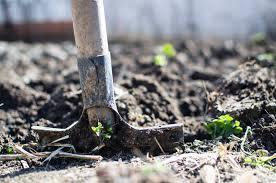Food quality is a severe concern in today’s modernized world. Food can be produced quickly by conventional farming, but it impacts the health of the consumers directly.
Conventionally grown foods are harmful because of using toxic chemicals. On the other hand, in organic farming, no harmful chemicals are used. Organic agriculture means producing food without using chemicals. Harmful Fertilizers, pesticides, antibiotics, growth hormones are prohibited. Instead of chemicals, a lot of organic matter is used to give crops the nutrients needed to grow. Clover, for example, has a lot of nitrogen in it, and farmers use it to make the soil better. Manure from animals and compost are also used to enrich the soil. These fertilizers also help in conserving the soil for many years. Chemical pesticides destroy or weaken many of the natural enemies of pests, like birds or frogs. They also can kill those insects that control a significant number of problems. The way the food is grown can affect physical as well as mental health. Organic food is beneficial for health as they are free from harmful chemicals. They are grown naturally and have more nutrients because of it.
Northbourne, in 1940, in his book entitled ‘Look to the Land’.Northbourne stated that ‘the farm itself should have biological completeness; it must be a living entity; it must be a unit which has within itself a balanced organic life’.
ORGANIC FARMING VS CONVENTIONAL FARMING
Conventional farming is the method that requires using pesticides and other chemicals to get the highest possible yield of crops. However, using this method compromises crop quality.
The chemicals seep into the soil and enter the food chain at multiple points. Conventionally grown food that lands on our tables may also be laden with pesticides harmful to our health. Conventional farming aims to ensure food security, even if that can be achieved through genetically modified organisms (GMOs).
On the other hand, organic farming relies on sustainable ways of growing crops. These techniques are farm-focused, improving the natural fertility of the farm. According to research, some of these techniques are:
1. Crop rotation
2. Companion planting
3. Use of natural fertilizers like compost, green manure or bone meal
4. Fostering natural insect predators, etc
Modern or organic farming aims to improve fertility, health and safety of the soil, preserve the environment, and provide human beings with high-nutrition crops free of chemicals.
BENEFITS OF ORGANIC FARMING
1. HEALTH SAFETY –
As we know, in organic farming, all harmful chemicals are prohibited, resulting in more nutrition in food, which directly affects the consumers’ health. Organic foods are good for health and ensure health safety.
2. ENVIRONMENTAL BENEFITS –
Organic farming is also good for the environment because it increases soil fertility, causes less pollution and water, and consumes less energy.
3. LESS EXPENSIVE-
Cost in organic farming is significantly less because of no use of chemicals such as pesticides, fertilizers, growth hormones etc. Farmers can use only relevant machines like tractors which are available at affordable prices like SONALIKA 60 Tractor.
CHALLENGES FOR ORGANIC FARMING
1. INADEQUATE INFRASTRUCTURE –
Government policies and credible mechanisms are not adequate to boost up this sector. Inadequate infrastructure is a severe concern in organic farming.
2. HIGH PRICE OF ORGANIC PRODUCTS –
The end product of organic food is always more expensive than conventional food because of limited supply, inadequate storage, and consumers go with conventional products because of their cheaper rates.
3. SHORTAGE OF ORGANIC SEEDS-
Seeds and inputs are highly regulated and governed by government policies. The government gives subsidies for chemical fertilizers and pesticides, but there are no such organic inputs. There are certification programmes for organic seeds, but there is no recognition for certified seeds. Due to the less availability of certified organic seeds, farmers are forced and advised to use the conventional sources only, as they could be treated with chemicals. Hence the government should implement a different policy framework for organic farming, covering seeds production and input supplies.
For these kinds of blogs, visit Tractor Junction and stay connected with us.
